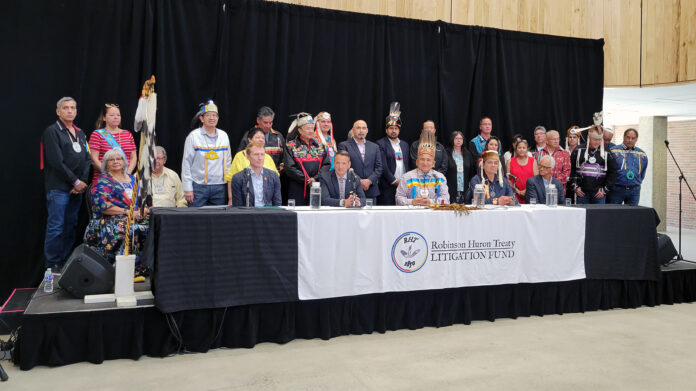Under the Augmentation Clause of the Robinson Treaties, the Crown has a duty to consider, from time to time, whether it can increase annuities without incurring loss.
That was the first ruling in a six-part judgement on appeal released by the Supreme Court of Canada on Friday.
Previous rulings by the Ontario Court of Appeal on the interpretation of the Treaties and the Crown’s defences were the focus of the case.
Canada’s highest court says it has allowed Ontario’s appeals in part, dismissed the plaintiffs’ cross-appeals, and issued a declaration about the rights and obligations under the Augmentation Clause.
That clause involves an increase in annuities over time under certain circumstances.
Annuities haven’t increased beyond $4 per person since 1875.
The six-part judgement is as follows:
- Under the Augmentation Clause of the Robinson Treaties, the Crown has a duty to consider, from time to time, whether it can increase the annuities without incurring loss.
- If the Crown can increase the annuities without incurring loss, it must exercise its discretion as to whether to increase the annuities and, if so, by how much.
- In carrying out these duties and in exercising its discretion, the Crown must act in a manner consistent with the honour of the Crown, including the duty of diligent implementation.
- The Crown’s discretion must be exercised diligently, honourably, liberally, and justly. Its discretion is not unfettered and is subject to review by the courts.
- The Crown dishonourably breached the Robinson Treaties by failing to diligently fulfill the Augmentation Clause.
- The Crown is obliged to determine an amount of honourable compensation to the Superior plaintiffs for amounts owed under the Augmentation Clause for the period between 1875 and the present.
A negotiated settlement involving past breaches with the Huron plaintiffs has already been reached.
The $10 billion agreement was signed in January.
21 First Nations are involved, including Nipissing and Dokis First Nations.
A case in brief was prepared following the court’s decision.



